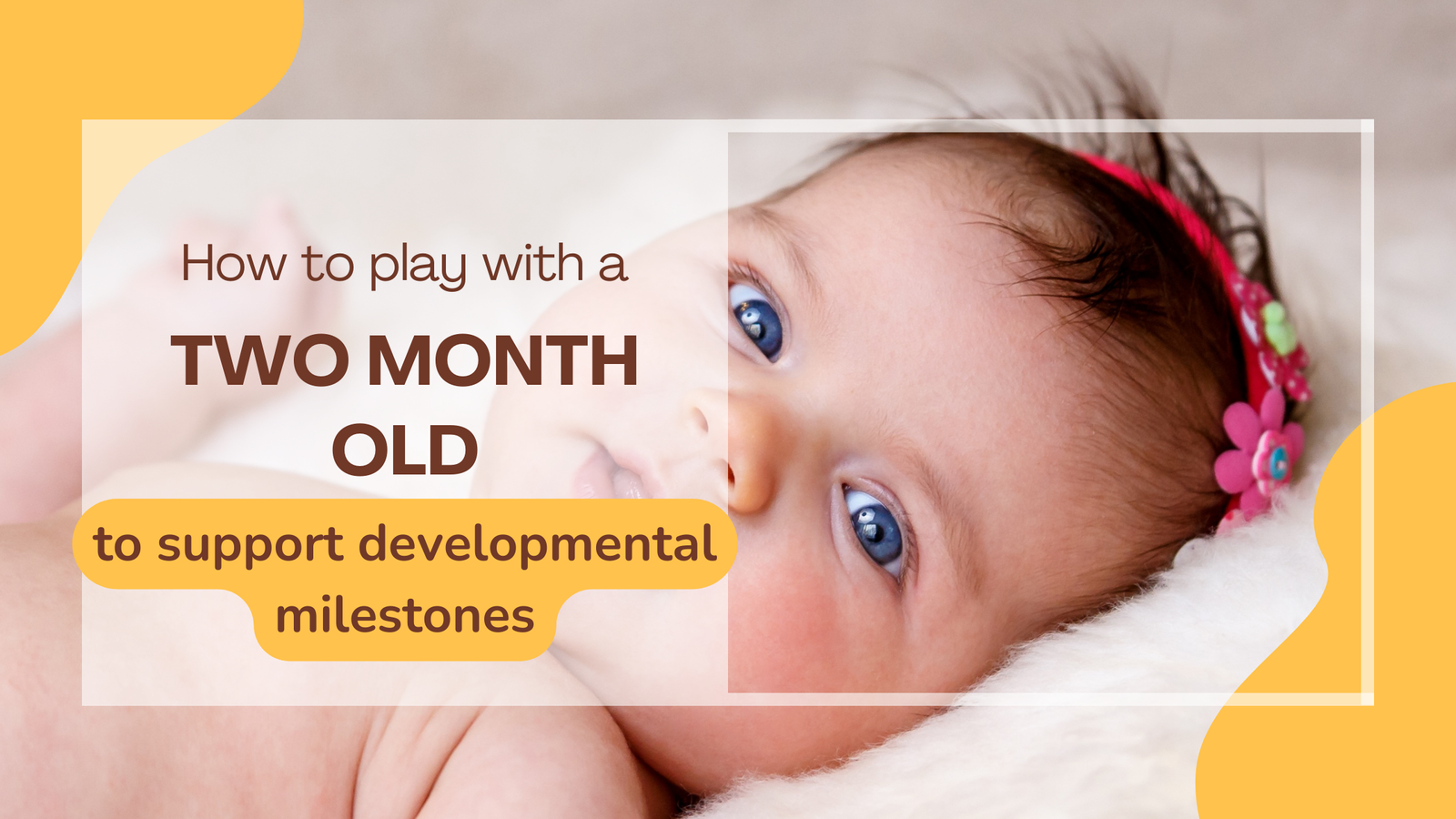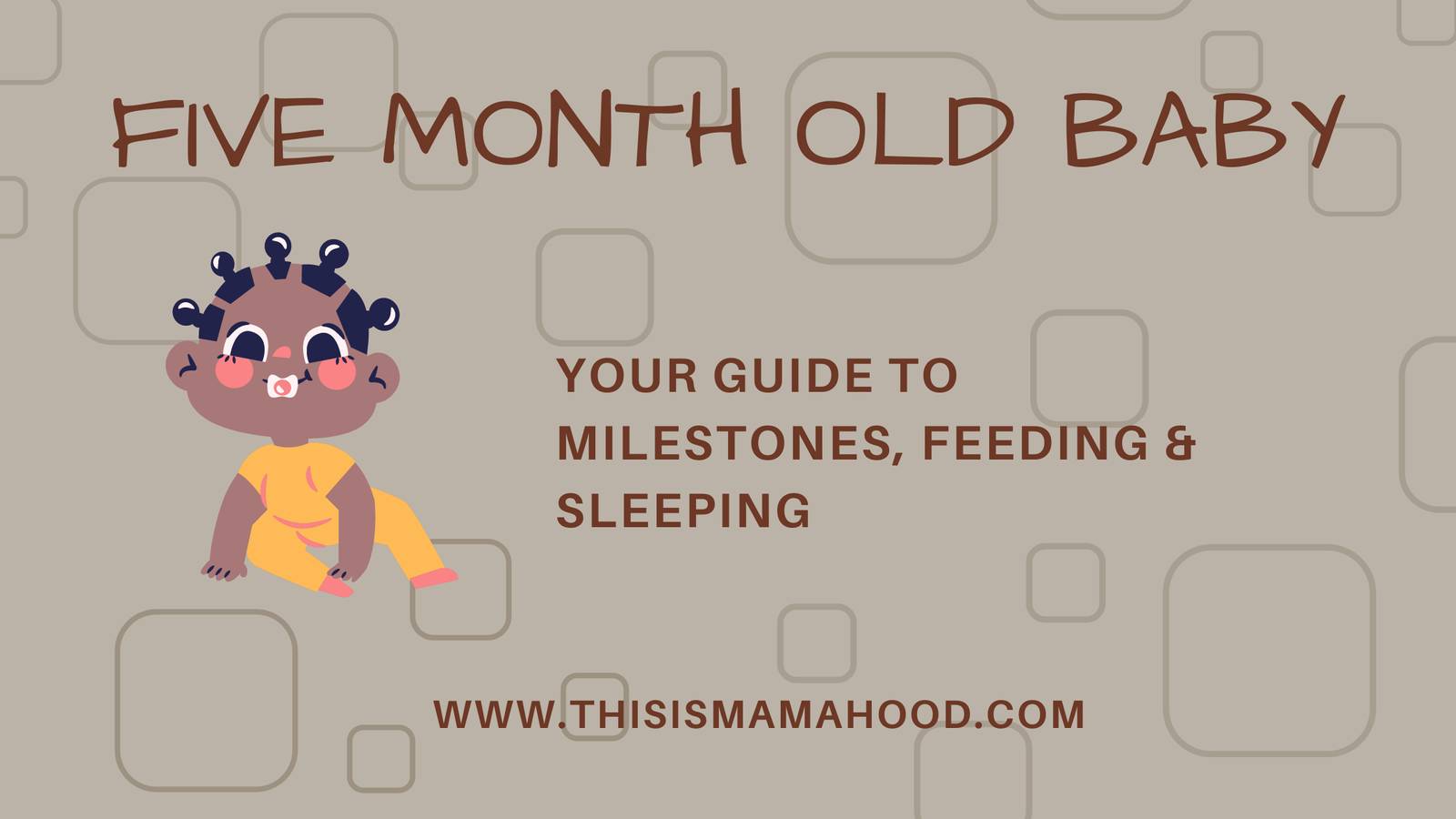Overview
This week has probably been a blur of a whirlwind; but, you got this, mama! Having a one-week-old baby is not easy. One week ago, you were given this tiny human and left alone to figure out how to care for them. This week has probably been filled with lots of baby cuddles, feeding frustrations, and a whole lot of lack of sleep.
Your baby cannot do a lot of things at this point in their life and you may wonder what to do with them. This post will hopefully answer some questions you have on how to feed and play with your baby, as well as how to care for them. Read on, and remember being a mama is never easy, but oh so rewarding.
One-week-old baby milestones
At only one week old, your baby will not have any notable milestones yet; they are mainly only moving and reacting based on their inborn reflexes. Most of your 1 week old’s time will be spent eating and sleeping, and not much else.
Vision
During the small spurts of time when your newborn is awake, you may notice that if you hold them a few inches from your face, they will look right at you. This is because babies can only see about 8-12 inches in front of them at this stage in development. They also do not see in color yet; only in greyscale. However, they can perceive light and dark.
Reflexes in a 1-week-old baby
When newborns are born, they are born with involuntary, automatic responses to some stimuli. These responses are known as reflexes. Some reflexes you have for life – such as breathing, coughing, and gagging. However, some reflexes start at birth and go away within the first year. These reflexes help babies survive and are imprinted into our DNA. This ensures they can thrive in the first months when they are still learning to use their bodies and gaining muscle to move.
Rooting
The rooting reflex helps a baby to find the breast or bottle when being fed. When the baby’s cheek is stroked, they will turn their head in that direction. Their mouth will also open and they will look for a nipple to start feeding. The footing reflex generally lasts for the first four months of life.
Suckling
The suckling reflex is essential for babies in order to feed. In fact, this reflex starts when your baby is still in the womb. They will practice by sucking on their fingers or hands before birth. The sucking reflex is initiated when something like a nipple or pacifier touches the roof of the baby’s mouth. The baby will then instinctively start to suck on the object.
Grasping
You may be excited when you touch your newborn’s palm and they close their little hand around your finger. This baby hand holding is actually a newborn reflex, known as the palmar grasp reflex. This reflex allows your baby to grasp something when placed into their palm. It lasts until they are about 5 months old when they start to gain the ability to grasp things on their own.
Stepping
You might be surprised to learn that babies under 2 months old can “walk”. This is due to another newborn reflex, known as the stepping reflex. This occurs when you hold your baby up in a standing position and place their feet on a hard, flat surface. You will notice that they will lift their feet as if they are walking. Be sure that if you decide to test this reflex out with your little one that their body and head are well supported.
Startle
The startle, or Moro, reflex occurs when a baby gets startled by a loud, unexpected sound or movement. They will arch their head back and quickly extend their arms and legs, then pull them back in. Sometimes they will cry, but they may also seem unfazed. This reaction will usually disappear around the 3-6 month mark.

Sleeping guide for a 1-week old baby
At just one week old, your newborn will still be sleeping for the majority of the day. You can expect 16-18 hours of your baby’s day to be spent sleeping. Unfortunately for you, these hours will not be consecutive. You should anticipate your baby to awaken every 2-3 hours for a feeding, during night and day.
You may find that your newborn has their day and night mixed up – sleeping longer periods during the day and shorter periods at night. This is because their circadian rhythm has not yet been established. In order to help them with this, you should make sure that at night you are putting them in their crib or bassinet, in a dark room. When your baby wakes during the night to feed or have a diaper change, try to keep the lighting dim and reduce stimulation. During the day, keep the room lit and do not be shy about noise. Go about your daily activities without worrying about the sounds you are making. This will help them learn that nighttime is not very exciting and that it is the best time to sleep.
Feeding guide for a 1-week-old baby
There are a lot of questions that come up within the first week of a newborn’s life. Breastfeed or formula feed? Is my baby eating enough? Is my baby eating too much? How often should my baby be eating?
Remember, though, that your baby is also learning how to eat. They are learning how to find the breast or bottle, how to latch on, and how to get that milk out. Between the two of you, there is sure to be some frustration during that first week, but just keep in mind that it will get easier with time.
At this stage, your baby will be eating small, frequent meals. It is too soon to have them on a schedule and therefore, you will find that you will be feeding them when they seem hungry, every 2-3 hours. At 1 week old, your baby should be woken up after 3-4 hours to feed, if they do not wake up by themselves.
Signs of hunger in a 1-week old baby include rooting and looking for a food source, opening and closing their mouth, and waking up restlessly. Crying is a late indicator of hunger.
You will be able to know if your baby is getting enough food by how many diapers you have to change in a day. Your baby should have at least 6 wet diapers and 3 poop diapers each day. Your baby should also be gaining about 1/2 ounce each day. If they are not gaining weight, they may not be eating enough and you should contact your pediatrician to discuss this.
Breastfeeding
If you decide to breastfeed your baby, you may find that this week is extremely difficult while the two of you figure out how to properly feed. Your baby may have trouble latching onto the breast and you may have trouble figuring out how to position your baby. It is recommended to work with your pediatrician and lactation consultants to make sure both you are your baby are able to breastfeed properly.
Breastfeeding newborns is usually done ‘on demand’, meaning that you breastfeed whenever your baby is hungry. Unlike bottle feeding, there is no way to know how much your baby drank in each session. This means you may be breastfeeding every 2-3 hours. Once your baby seems satisfied with the first breast, you should try to feed from the second, as the first may have been emptied. You should expect each breastfeeding session to last at least 20 minutes.
Formula Feeding
If you decide to formula feed your newborn, you should be expecting to feed every 2-3 hours. At 1 week old, your baby should be making their way to eating 2-4 ounces of formula at each session.
Since there are many different brands and types of formula, you should talk to your pediatrician about the best choice for your baby.
How do I play with my 1-week old?
Your baby may not be awake for very long periods of time yet, but during these times, you might be thinking: What am I supposed to do with them? If your baby is not hungry, you may start to wonder how you should be playing with your 1-week old. At this stage, the best things you can do include cuddling your baby and making different facial expressions and noises at them.
Your newborn should also start spending some time on their tummies every day. This will allow them to start strengthening their neck and core muscles. Lay them on a blanket and set out some high-contrast photos or a mirror to look at. Be sure to always supervise your baby while doing tummy time and start out with very short periods of time. You may find that your baby hates tummy time and cries the whole time, but that should not stop you from allowing just a few minutes of tummy time each day.
How to care for my 1-week old baby?
Health check
Your baby should have a health check-up 3-5 days after birth. Depending on how your baby is doing at this time, you may need to see your pediatrician again before their scheduled one-month check-up. You should expect your doctor to weigh your baby and do a physical examination. They will then discuss with you specifics regarding the feeding, sleeping, and bathroom habits of your baby. This is the ideal time to bring up any questions or concerns you may have.
Umbilical cord
You may be wondering how to care for your newborn’s umbilical cord stump. The best thing you can do is actually just leave it alone and let it heal. When giving your baby a bath, be sure to keep the umbilical cord area dry. During this time, you should not immerse your baby in the water, and instead, give them a sponge bath with a soft washcloth. You should also fold the front of your baby’s diaper over so it hits just below the belly button. This will prevent the diaper from rubbing up on the umbilical cord and causing an infection.
Sleep safety
Safe sleep is important to prevent SIDS. When putting your baby to sleep, it should always be on a firm, uncluttered surface, usually in a crib or bassinet. There should be nothing in the sleeping area, including toys, blankets, pillows, or loose bedding. Bed-sharing is not recommended, however having your baby sleep in the same room as you is recommended. This means having the crib or bassinet beside your bed. This allows you to easily tend to your baby’s needs during the night. Finally, your baby should always be placed to sleep on their back.




